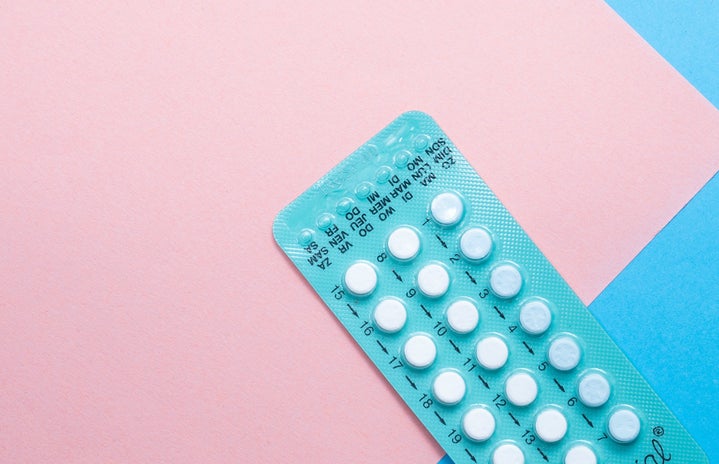Millions of women worldwide have decided to go on the pill for a variety of different reasons. Whether it be to prevent unwanted pregnancy, regulate periods or control acne, birth control has helped women in many different ways. However, negative side effects are common as well and it is important to consider the pros and cons and discuss any concerns you may have with health care professionals. Read on to discover information that may surprise you about your brain while on birth control.
Your Sex Life
Sarah Hill wrote an informative book that revealed extensive information on how the pill affects women in many different ways, including their sex life. The information she revealed is a little depressing but it’s important to recognize that many factors contribute to a healthy sex life and being on the pill doesn’t necessarily correlate to having a bad one. However, the science does reveal that “Naturally cycling women—in addition to choosing sexier partners—seem to be enjoying better sex-related . . . well, pretty much everything when compared with women who chose their partners while on the pill.” Why is this the case? Naturally cycling women are more in touch with sex appeal, at least in the phase of their cycle when estrogen is dominant. There is a lot of research that finds that “women on the pill have lower sexual desire than what is observed in naturally cycling women. It also shows that they tend to have sex less frequently and are more likely to have problems with pain or discomfort from sex than non-pill-taking women do.” The primary goal of taking birth control for some is to prevent pregnancy but to still enjoy sex safely, and a decreased sex drive can be a major roadblock in the whole enjoyment aspect. One reason the pill can kill your sex drive is its “suppression of ovulation and the estrogen surge that precedes it.” This will aid in preventing pregnancy but can kill sex. Becoming aware of this side effect can help determine if your sex life is suffering from being on the pill and where to go from there.
Research has also found that being on the pill can potentially make men less interested in sex with you. The periovulatory phase of your cycle (the window of time prior to ovulation when estrogen is dominant) is usually when women look and feel their most attractive. At high fertility, men are more attracted to women’s faces, bodies and odors. The periovulatory estrogen surge is telling women’s bodies to amp up the sex appeal so they can get those eggs fertilized. Since pill-taking women don’t ovulate, they miss out on this mid-cycle boost of seduction. To test this theory, researchers observed monkeys on the pill. Obviously, this research isn’t perfect to discover what goes on in humans, but it’s definitely interesting to compare. The results showed “pretty unanimously that being on the pill decreases females’ likelihood of being chosen as a mate.” Those poor female monkeys, just trying to prevent unwanted pregnancy are now being rejected in the wild.
Your Mental Health
It’s no secret that some women have a much better experience on the pill than others. A 13-year research study in Denmark, published in JAMA Psychiatry, is the first to truly dive into the relationship between mental health issues and birth control. The scientists tracked the use of contraceptives and antidepressants in more than one million women aged 15 to 34 from the years 2000 to 2013. “Women who used hormonal contraception were found to have a 40 percent greater chance of developing depression after six months of use, compared to those who didn’t use it.” A woman’s risk of depression more than doubled when on progestin-only pills and her chance of depression tripled with the use of the levonorgestrel IUD. However, the study isn’t without its shortcomings since it doesn’t account for subjects who may have already had depression that wasn’t yet diagnosed. The results still raise concerns, and it is important that women are taken seriously when their mental health suffers while on the pill. The correlation between depression and anxiety while taking birth control has long been discussed, but often downplayed as many women are assumed to be dramatizing their mental health issues.
Your… Sense of Smell?
A study that appeared in Human Reproduction found that women who were on the pill were less sensitive to scents, which in turn can negatively affect their sex drive. A woman’s sense of smell is most sensitive during ovulation when women are very fertile. Smell is an interesting factor when choosing a partner because certain odors are connected to human sexual attraction. The area of the brain through which we experience smells, the olfactory lobe, is part of the limbic system, the emotional brain, the area in which sexual thoughts and desires come from. Something that affects one area could conceivably affect the other. With this in mind, taking birth control doesn’t mean you won’t be able to smell at all and it isn’t as if scent is necessarily the utmost important factor in choosing a mate anyways.
There you have it! Talking to your doctor about any concerns you have about whether birth control is right for you is the best way to ensure that all pros and cons are considered.
Works Cited:
Hill, S., 2019. This is your brain on birth control. New York: Avery.
Kozicka, P., 2016. Women’s birth control linked to greater chance of depression: study. [online] Global News. Available at: “>abcnews.go.com [Accessed 5 March 2021].



